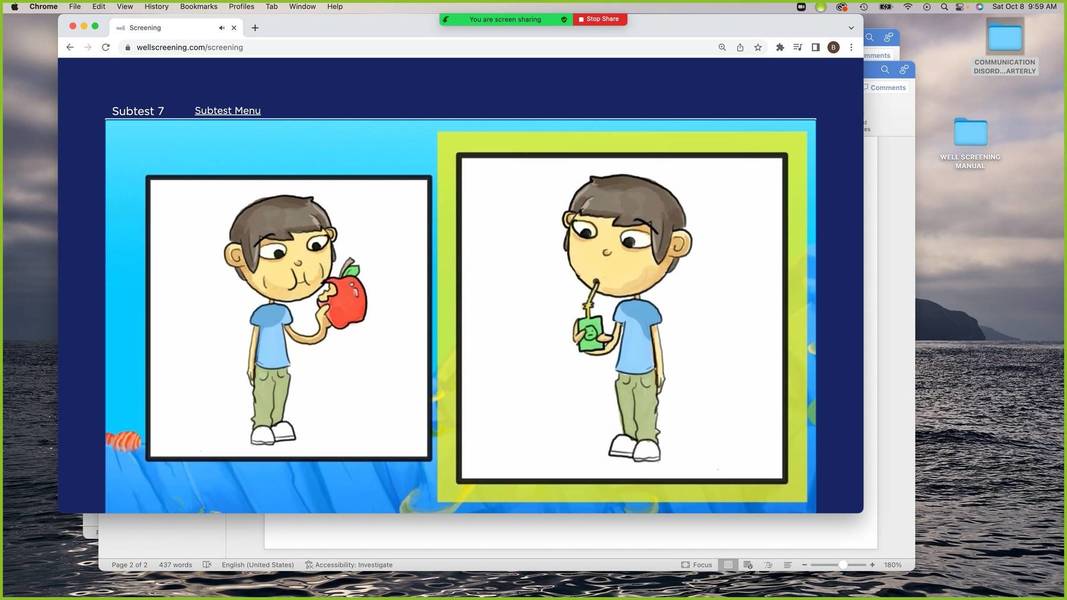
- Glossary
- Instructions
-
Login
My Screening
Welcome! Let's get started.
Step 1: Please Listen to Instructions
If this is your first time conducting a Well Screening, please take a minute to review the instructions and video below.
Instructions
Step 2: Prepare Helper's Scoring Form
The helper's job is to quietly sit beside the child, listen to Trip's directions, and record the child's responses using a smartphone, tablet, or computer.
Scoring Form (On your screen)
Step 3: Begin Screening
The screening takes about 20 minutes to complete and is administered to the child using a desktop, laptop, or tablet.
Begin Screening (On child's screen)


